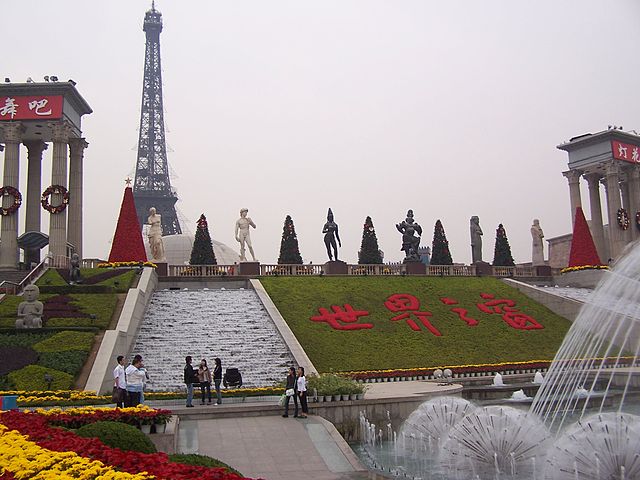The Chinese Eiffel Tower

To show they are making it big, the Chinese have turned to faking it big.
In recent years, some of the nation's real-estate developers and even government officials have been churning out detailed counterfeits of the West's greatest architectural hits, from Unesco World Heritage sites to Le Corbusier gems to Manhattan skyscrapers.
Paris, Orange County, Interlaken, Amsterdam—all have their doubles in China. In Hangzhou, gondolas glide through the man-made canals of Venice Water Town, which boasts its own Piazza San Marco and Doge's Palace.
Last year, developers in Huizhou unveiled a brick-for-brick replica of the Austrian village of Hallstatt, complete with its cobblestone streets, historic church and even sidewalk cafes.
Don't assume that China's reproduction of Western architecture is proof of the West's superiority—at least that's not how the Chinese see it, says Bosker. Instead, the act of recreating the icons of other cultures on their own soil is a deep seated part of Chinese nationalism:
China's emperors also used copycat buildings to convey their mastery—actual or anticipated—over their adversaries. In the third century B.C., the First Emperor, Qin Shi Huangdi, commemorated his conquest of six rival kingdoms by ordering that exact replicas of their palaces be built in his capital. Today, the ersatz Eiffel Towers and Chrysler Buildings symbolize China's power to control the world by transplanting Europe and the U.S. into its domain.
Traditional Chinese attitudes toward replication also help to explain the trend. While Americans view imitation with disdain, the Chinese have traditionally taken a more permissive and nuanced view of it. Copying can be valued as a mark of skill and superiority. The director of China's National Copyright Administration has even praised copies as a sign of "cultural creativity."
Many of the most vibrant civilizations have long incorporated other traditions for cultural inspiration. But only history will tell who is getting the most benefit from the exchange.
